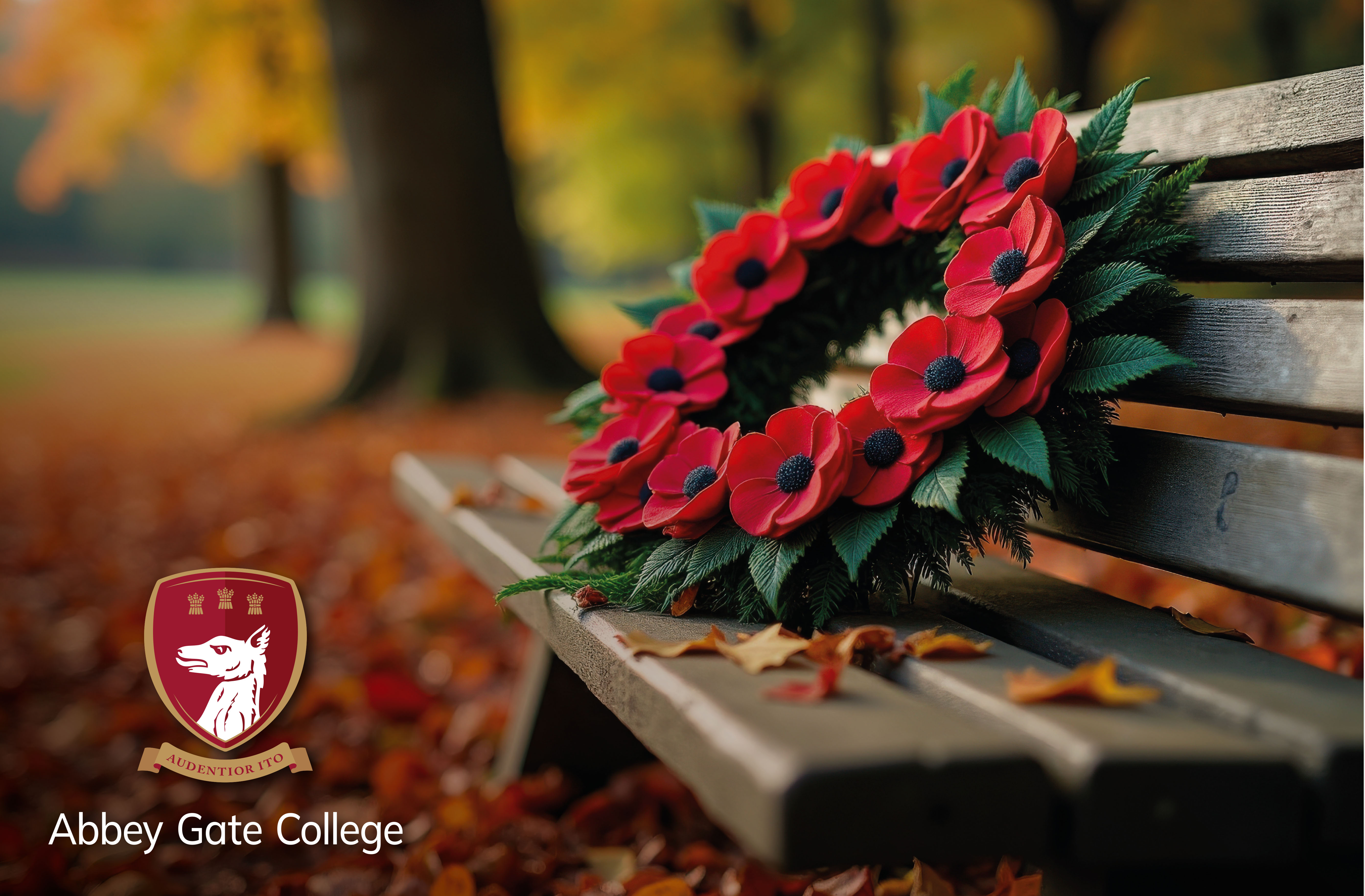 Remembrance at Abbey Gate College
Published on 11th November 2025
Remembrance at Abbey Gate College
Published on 11th November 2025
This morning, the Abbey Gate College Senior School community gathered for a moving Remembrance Assembly, joined by pupils from Saighton Primary School. Together, we paused to honour the men and women who have given their lives in service to others, and to reflect on what remembrance means today.
Mrs Grey opened her address by reminding us of the very first Remembrance Day, held on 11 November 1919, exactly one year after the signing of the Armistice that ended the First World War. Led by King George V at the Cenotaph in London, that first ceremony saw the whole nation fall silent. A reporter from the Manchester Guardian described how trams, cars and horses stopped in their tracks, and how “everyone stood very still … the hush deepened. It had spread over the whole city … a silence which was almost pain.”
Over a century later, Mrs Grey reflected, the spirit of remembrance remains as strong as ever. She spoke about the Menin Gate Memorial in Ypres, Belgium, where every evening at 8 pm traffic halts and the Last Post is sounded by the local fire brigade. This simple act has continued nightly since 1928, a reminder that remembrance is not confined to one day each year, but endures across generations.
Mrs Grey also spoke about another, lesser-known memorial in Staffordshire – a single statue of a young soldier, blindfolded and tied to a stake, surrounded by 309 wooden posts. Each post represents a British soldier executed during the First World War for what was then called ‘cowardice’. Many of these young men, some still in their teens, were suffering from what we now recognise as post-traumatic stress disorder.
She shared the stories of soldiers such as Private Thomas Highgate, one of the first to be executed after the Battle of Mons, and Private Herbert Burden, who was just 16 when he faced a similar fate. Both had witnessed unimaginable loss and trauma. Their courage – and the compassion with which we now view their stories – reminds us that remembrance is not only about the fallen, but also about understanding the cost of war on every life it touches.
Mrs Grey explained that the military death penalty was abolished in 1930, and that in 2006 the British government formally pardoned the 309 men who were executed. She reflected that remembrance should include all those affected by war, both known and unknown, and encouraged pupils to think about how we can show gratitude and respect for those who gave their lives for others.
She also drew attention to this year’s Royal British Legion campaign, which highlights the continuing work to support the mental health of serving and former members of the Armed Forces — a vital reminder that remembrance connects past and present through care and community.
The Assembly was accompanied by beautiful choral music performed by the College’s Chapel Choir, who sang Anima Christi, Angus Dei and For the Fallen. Year 12 student Bea played The Last Post on her trumpet with incredible skill, adding a poignant and moving moment to the ceremony.
As always, our Infant and Junior School children were also able to commemorate Remembrance in the beautiful setting of St John the Baptist Church in Aldford. The service was led by Rev Carl, with Derek Weaver reading the names of the fallen from Aldford. Wreaths, made by the children from recycled materials, were placed at the altar, and we were delighted to be joined by two of our Sixth Form Heads of School, who also read during the service. The children sang and read beautifully, and there was complete silence during the two-minute silence – a testament to their respect and understanding of the occasion.
At 11 o’clock, the College fell silent. Pupils and staff stood together to remember the bravery, sacrifice and humanity of all those who have served.
We will remember them.
#LestWeForget







